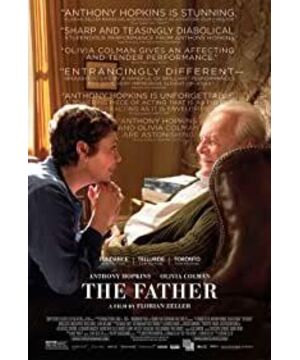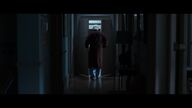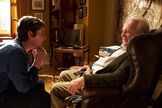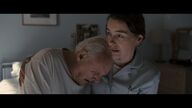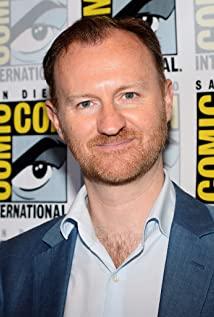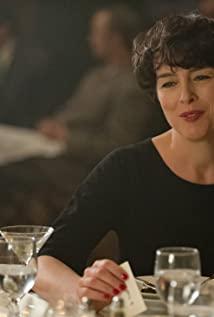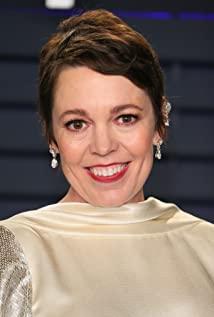There are not many movies about old people, and even fewer good movies about old people. The rarest are those works that refuse to sugarcoat aging, and they seem to use a certain kind of honesty to give sober care to the trajectory of human destiny. Are the trials of old age as frightening and heartbreaking as the self-erosion caused by Alzheimer's disease? French playwright and director Florian Zeller recreates the mental decline of an old man with keen insight in The Father.
It's an immersive role-play about an old man struggling to survive as people, the environment, and time itself become increasingly unstable, especially after losing control of the people and things around him. A story that finds justification for its existence.
Many films have attempted to convey different psychological states through a variety of means — twirl photography, psychedelic special effects, wild montages — but the intrusive memory loss may never have , is profoundly conveyed in a way that refuses to work according to traditional timelines: events are often shuffled out of sequence, or replayed unpredictably.
Father Anthony, who can never seem to find his watch, suspects that someone has taken it - either the maid hired to look after him or the man he meets in the living room who claims to be married to his daughter. As Anthony grew suspicious of those around him, his confusion and paranoia reached Hitchcockian levels. (He always hides his valuables in the bathroom, however, a habit that's not as secretive as he thinks.) Anthony searched repeatedly, then found his watch, insisting he needed to know the time. The imagery of the lost watch underscores the feeling that people with Alzheimer's are largely outside of time, and that a persistent hallucination is continually contributing to reflexive destruction.
The inability of Alzheimer's patients to recognize their loved ones was a frightening and inexplicable ordeal for Anthony; it was also frustrating and heartbreaking for his daughter, Annie. Anne would tell him things like she had met someone and she was going to Paris to be with him; but when he brought up the move later, she had absolutely no idea what he was talking about. What's even scarier is that sometimes to Anthony, she looks like someone else entirely, but still calls him "Dad" and wonders why he's looking at her that way. Certain details — a chicken dinner, a divorce, the arrival of a new carer named Laura, a conversation about a nursing home — keep coming up, making it hard to see whether we are in the past or in the present . As the film progresses, Annie's perspective begins to blend in more and more, and it's clear that she's consumed by her own struggle to care for her aging father.
Anthony is trapped in time, and so is the viewer. "Father Trapped in Time" doesn't reveal any twists or surprises, it just unfolds and draws people into reality: Anthony is trapped in a loop, he lives outside of time, but the people around him must Keep moving forward into the future. The reason his situation is so dire is that he still maintains enough self-awareness to sense that something has gone terribly wrong. Facing the wall of survival that holds him back, he feels lost and panicked, and has trouble finding out. While the director doesn't completely subvert the thematic narrative of aging, he does leave the audience disoriented: we never know where we stand on Anthony's ever-sinking scale of anger, frustration, and self-denial, complemented by a sense of detail about our surroundings. Manipulative, movies are enough to make us question when and where we are.
Just as only great people can obtain the magic elixir, the ego of people with excellent acting skills is strong and flexible. on the dividing line. At 83 years old, Anthony Hopkins shows no sign of letting up as a performer, still exuding authority and excellence, shifting maneuverably between growl and vulnerability, showing subtlety and straightforwardness , a character that is both tough and gentle. It is a technical mastery that allows one to see how an actor known for his rigor and control captures the physical cues of mental retardation in old age, such as the jagged expression of refracting thinking conditions, such as the management of expressions that are sometimes bright and sometimes lax, such as Feng Tangyi's old belt gait changes that come. The father in the film is emotionally rich - egotistical, old-fashioned, endearing, and infuriating at the same time, but Anthony Hopkins never exaggerates the complex emotions at his disposal, instead dignified beneath a shaky exterior. Scrutinize all of this with extraordinary serenity. He thoroughly places the audience in the experience of a protagonist, with a compelling emotional effect. When the lingering voice fades, you follow him gently for the last time, only to find yourself out of breath again.
In "Father Trapped in Time," we see a man sliding toward the ocean, but we experience it from the heart, so the ocean seems to be sliding toward us. Anthony's mind shattered like an iceberg, and what remained were fragments of dreams that occasionally reflected the face of his less-loved daughter. In the narrative traps laid out by time one after another, the feeling of powerlessness grows little by little - hesitation and confusion, turning into some kind of dull stare at the moment before the flashback of life, allowing us to see the truest willow Lao Beihuan, restless in the room.
View more about The Father reviews


